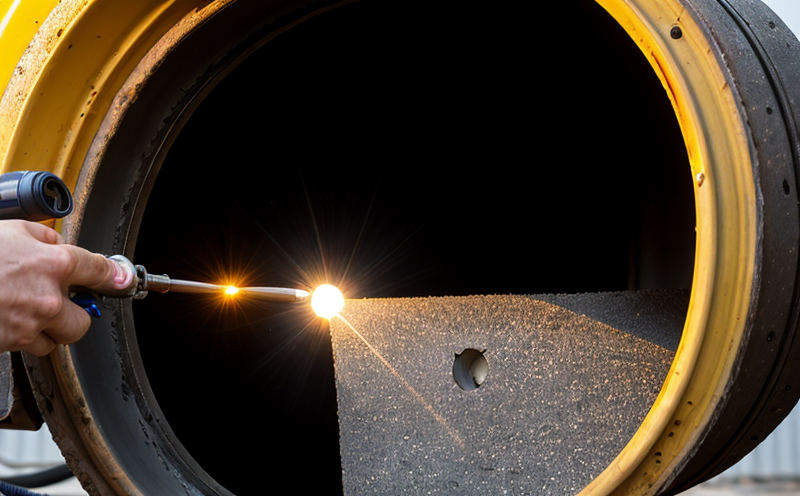EN ISO 17643 Eddy Current Testing of Welds
The European Standard EN ISO 17643 provides a comprehensive framework for the non-destructive testing (NDT) of welds using eddy current techniques. This standard is particularly valuable in the railway and transportation sectors where safety, reliability, and quality are paramount. The application of Eddy Current Testing under this standard ensures that defects can be detected accurately without damaging or altering the integrity of the welded components.
Eddy Current Testing (ECT) is based on electromagnetic induction principles. When an alternating current passes through a conductor, it generates a magnetic field around the conductor. If there is a change in the conductive properties of the material being tested, this can lead to changes in the magnetic field and thus detectable variations in signal strength or phase shift. In the context of welding defects such as porosity, cracks, or incomplete fusion, these anomalies alter the electrical conductivity and hence are observable through ECT.
The railway industry relies heavily on robust and reliable welded joints for its rolling stock, infrastructure components, and maintenance equipment. Ensuring that these welds meet stringent quality standards is critical to avoid failures during operation which could lead to accidents or costly repairs. The use of EN ISO 17643 ensures that the testing process adheres to international best practices.
The standard outlines detailed procedures for preparing specimens, selecting appropriate equipment, and interpreting results. Specimens must be cleaned thoroughly before testing; any contamination can interfere with accurate measurement. The test setup includes a suitable coil arrangement designed to excite eddy currents within the weld area. Reporting requirements specify that defects should be classified according to their size, location, shape, and type.
Compliance with EN ISO 17643 not only enhances the safety profile of railway systems but also supports regulatory compliance for manufacturers operating in Europe and beyond. By adhering strictly to this standard, organizations can demonstrate their commitment to quality assurance and continuous improvement.
| Standard | Description |
|---|---|
| EN ISO 17643-2 | Application of Eddy Current Testing to Detect Defects in Welded Joints |
| ASTM E1058 | Eddy Current Testing of Welds by the Contact Method |
Applied Standards
| Standard | Description |
|---|---|
| EN ISO 17643-2:2019 | Eddy Current Testing of Welded Joints - Particular Applications |
| ASTM E1058-17a | Eddy Current Testing of Welds by the Contact Method |
| Standard | Description |
|---|---|
| ISO 9770-1:2016 | Eddy Current Testing - General Principles and Methods |
| IEC 60478-1 | Eddy Current Testing - Particular Applications for Non-Destructive Testing |
Eurolab Advantages
Our commitment to excellence in railway and transportation testing is reflected in our adherence to the highest international standards. Eurolab offers a range of services tailored to meet the specific needs of clients within this sector, including comprehensive Eddy Current Testing according to EN ISO 17643.
- Expertise in Tailored Test Procedures
- Dedicated Equipment for Rail Industry Applications
- Comprehensive Reporting and Interpretation Services
- State-of-the-Art Facilities Ensuring Precision Measurements
- Comprehensive Training Programs for Client Personnel
- Robust Quality Assurance Processes to Ensure Consistent Results
- Collaborative Approach with Clients for Continuous Improvement
Our team of highly experienced engineers and technicians ensures that every aspect of the testing process is conducted meticulously. From initial consultation through to final report delivery, we strive to provide unparalleled service that aligns perfectly with client expectations.
Competitive Advantage and Market Impact
- Adherence to strict international standards such as EN ISO 17643 enhances our reputation and credibility in the market.
- Advanced technology and experienced personnel ensure high accuracy levels, reducing false positives and negatives.
- Dedicated solutions for railway industry challenges contribute significantly towards maintaining safety and reliability standards.
- Continuous investment in research and development keeps us at the forefront of NDT innovations.
- Strong relationships with leading manufacturers foster innovation and improve service offerings.
Our services play a crucial role in ensuring that the railway industry meets stringent quality benchmarks, thereby contributing to safer transportation systems worldwide.





